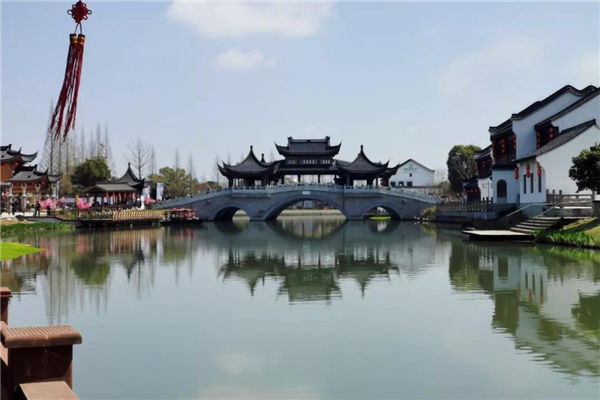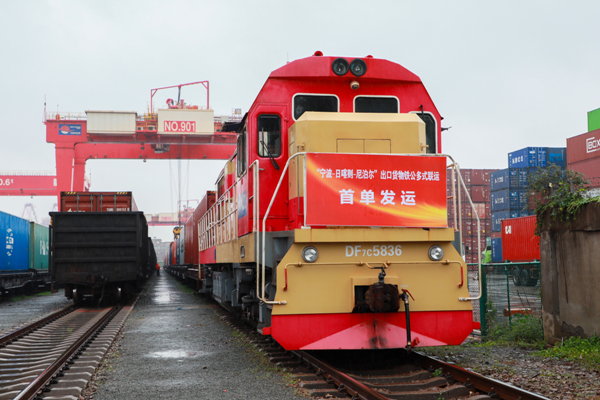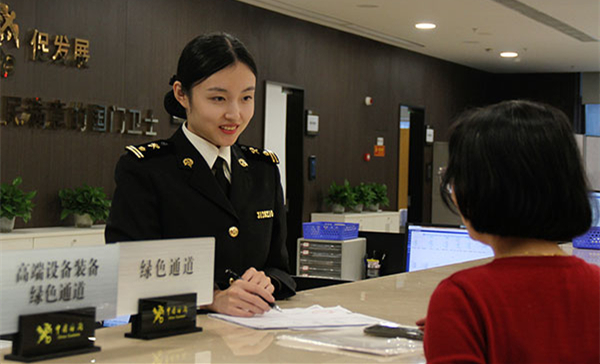Role of finance in industrial upgrade gets experts' attention

A 5G-linked robot conducts a safety inspection at a power grid station in Chuzhou, Anhui province, in August.SONG WEIXING/FOR CHINA DAILY
Funding in focus to ensure digital tech bolsters firms of all sizes, real economy
Finance is instrumental in accelerating China's industrial upgrade, which will buoy the country's sprawling industrial economy amid challenges, company executives and experts said.
Liu Xiangdong, a researcher with the China Center for International Economic Exchanges, said: "Applications of digital technologies have expanded from the consumption arena to the production field. The evolving industrial internet is already a new driver of the digital economy, and has remarkable development potential."
Supportive measures such as helping with the listing of eligible industrial internet enterprises will lead to the expansion of financing channels for these enterprises and expedite the development of the industrial internet, said Liu.
Xiao Gang, former chairman of the China Securities Regulatory Commission, said earlier that as digital and real economies become increasingly intertwined, finance should play a better role in supporting the development of the real economy by better leveraging digital technologies to serve industrial and supply chains.
When all elements of the industrial chains are digitalized, there will be a large amount of data, which will enable financial companies to serve not just one enterprise, but offer a package service plan for the entire industrial chain. Such efforts will also offer small and medium-sized enterprises better access to funding, Xiao said.
Liu Shengfu, co-founder and chief operating officer of Sinsegye, a Beijing-based company dedicated to developing industrial intelligent computing and control technologies, said financial support is needed to help companies turn ideas into products.
Sinsegye, Liu said, received early-stage funding from Lenovo Capital& Incubator Group, CAS Capital and Shenzhen Guozhong Venture Capital Management, which helped convert technologies in laboratories into products for the marketplace.
Within two years, Sinsegye's products have strengthened clients from a large number of industries like computing, communication, consumer electronics, semiconductors, photovoltaics, new energy and petrochemicals. They all now have better industrial intelligence.
Sinsegye is just one example of how Lenovo Capital & Incubator Group focuses on leveraging financial services to support smart manufacturing. So far, the company has invested in more than 50 companies, including listed companies and unicorns, engaged in smart manufacturing across sub-sectors like robotics, robotics plus computer vision, production line automation, industrial core components and industrial software.
Lin Lin, vice-president of Lenovo Group and senior partner of Lenovo Capital & Incubator Group, said the world is undergoing a new round of technological revolution and industrial transformation, with technological innovation as the strongest driving force for economic upgrading, all accelerating the process of digital and intelligent transformation in various industries.
According to China's Ministry of Industry and Information Technology, small and medium-sized companies specializing in niche industries with cutting-edge technologies accounted for about 70 percent of this year's IPOs in the A-share market.
Jia Hongwei, deputy head of the small and medium-sized enterprises bureau at the MIIT, said in November that more than 1,700 such innovative SMEs are now listed on the A-share market.
Jia said the authorities concerned will increase their efforts to create a favorable environment for the development of SMEs, expedite their IPOs and encourage more social capital to invest in them at the early stage.
In a meeting in November, the Central Financial Commission called for efforts to promptly study and introduce specific policies and measures to boost the field of technology finance.

 China makes outstanding contributions to global energy transition
China makes outstanding contributions to global energy transition  Ningbo village inspires Malawi official
Ningbo village inspires Malawi official  A look at China's economic data in the first three quarters of 2024
A look at China's economic data in the first three quarters of 2024 


